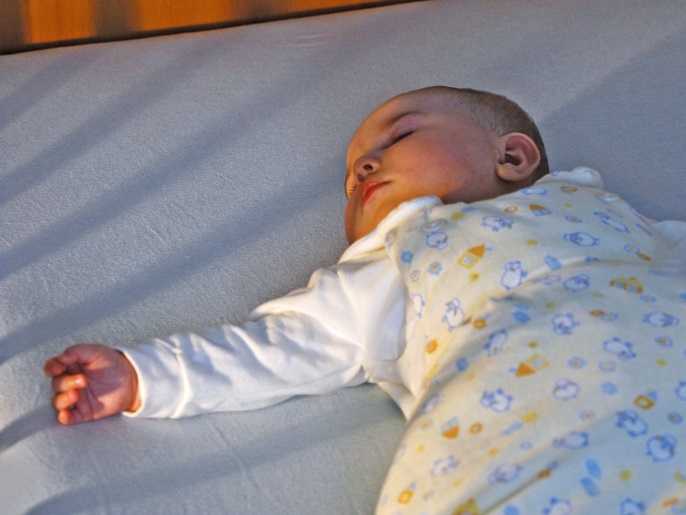Most mothers are confused about the baby's sleep, does he sleep in a separate bed? Does he sleep in a room alone? Or is it better for his comfort, growth and maternal passion to sleep in his parents' bed?
This confusion was not limited to mothers only, but it also included experts and specialists, as some found that it is normal for a mother and her children to participate in sleep and that the contact between them is important to strengthen emotional bonds.
Others are completely reluctant to share the same bed with his parents, and according to National Public Radio Npr, the American Academy of Pediatrics opposes the matter, confirming that the practice puts children at risk of sleep-related death, including sudden infant death syndrome and accidental suffocation.
Separate room
It is very beneficial for a baby to sleep in his own room on his own, according to a report on the Very well Family, as children with separate rooms sleep longer than children who share a room with their parents.
Babies who sleep in their room early tend to sleep longer, too. This has a positive effect, as not getting enough sleep is associated with many negative consequences, such as poor physical, cognitive and emotional development.
The report mentions another reason that may make the infant sleep in his separate room a good thing, which is to learn independence and order from an early age, as the child learns how to sleep alone and independently without the presence of his parents, and adheres to his sleep schedule and does not obligate the whole family to sleep at one time.
In his parents' bed
Some experts believe that sleeping a baby next to its parents is a natural and beneficial thing, as for centuries breastfeeding mothers slept next to their children, and it is still normal in many cultures around the world.
According to Healthy Families Home Birth, there are a number of benefits to sleeping alongside parents, including:
1- The baby cries less and sleeps more.
2- Sleep more calmly.
3- The baby's heart rate and temperature stabilize.
4- Reduces sleep apnea.
5- The child breastfeeds more without the effort of the mother.
6- It increases the bond between parents and the infant.
However, there are a number of drawbacks to having a child sharing a bed that cannot be ignored in any way.
1- The mother is forced to sleep on one side only.
2- It affects the parents' sleep deeply, as both of them feel anxious about hurting the infant during his sleep.
3- This situation affects the intimacy and intimacy between the parents.
4- It increases the risk of suffocation in bed and sudden death, which increases the likelihood due to slipping of a blanket or pillows during the movement of parents on the child, and one of the reasons may be that one of the parents is a smoker.
In his parents' room but in a separate bed
The most balanced matter reached by the specialists is that the infant sleeps in his parents 'room, but in a separate cot, as he can be monitored all night and enjoy his proximity, and at the same time protect him from any danger that may befall him as a result of sleeping in his parents' bed.
According to a report on "Kids Health", the child sleeps in a cot next to the mother is the safest position for the child than sleeping next to his parents, and fulfills the mother’s need to be close to her child and not to leave him in his first days.
Mary El Gavin, pediatrician and author of the report, advises mothers who are determined to sleep with their babies in mind:
1- Never sharing a bed during the first four months of a child's life, when the risk of SIDS is greater.
2- Always put the child on his back while sleeping.
3- Never share the bed on a soft surface, such as a water bed, sofa, or armchair.
4- Ensure that the mattress fits tightly to the bed frame so that the child does not get stuck.
5- Use small amounts of bedding and avoid pillows, blankets, pillows and toys.
6- Ensure that the child's head is not covered by any cover.
7 - Never share a bed with other children.
8- Avoid sleeping with the infant if one of the parents smokes or takes any medications that could make him feel dizzy or negatively affect his response to his child.

